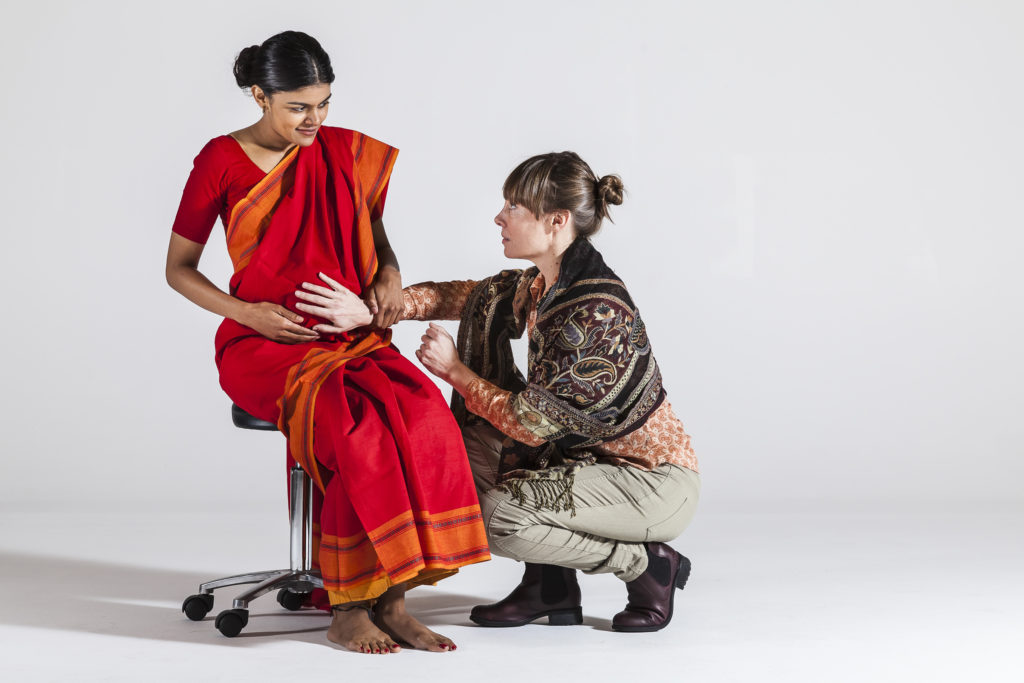Writer Satinder Chohan talks ahead of her new play, Made in India, which will premiere later this month.
What inspired you to write Made in India?
“I was applying for the Adopt A Playwright award and had less than 24 hours to find an idea before the deadline. Reading through newspapers for ideas (always an excellent research tool), I read a shocking article about a white, middle class English woman who paid an Indian village surrogate to birth her baby and had described her surrogate as a ‘vessel’.
“With my Indian village roots, the surrogate could have been any number of my female relatives or if my parents hadn’t emigrated to the UK, even me. The story was loaded with so much conflicting emotion, culture and politics, I knew I had to write a play around the situation, to explore and understand its fertile terrain. I submitted the idea, won the award and began writing the play!”
What makes this play so relevant now?
“When I began the play, commercial surrogacy was rife in many countries. During the writing process, India, Nepal, Thailand and Cambodia introduced surrogacy bans. In India, the ban feels like a nationalist reaction against global neoliberalism and a right-wing government trying to realign India with traditional family values. The play is a topical lens through which our changing global and local political landscape is filtered. It’s a compelling story about gender, economics, reproductive technology and ethics that continues unfolding across nations in the real world outside.”
Made in India explores medical ethics, business ethics, the reproductive rights of women, economic justice and social justice – why is theatre the right medium to explore these issues?
“Actually, I think these are issues and a story that can be told and explored effectively in any medium, using the full power of the chosen medium – whether it’s documentary, fiction, film or television. Theatre is an effective medium because it allows the interwoven stories of the three women to take centre stage, in one distilled, live and immediate emotional, political, dramatic space.
“Theatre demands these issues are kept tight. It allows us to focus on the shifting power dynamics between the characters, without any visual or narrative digressions that other mediums might give us the space to explore. I love that we focus so tightly on the lives of these three characters in a woman-centred space and see the essence of what surrogacy and all its emotional transactions entail.”
How has the play developed through working with Tamasha’s Artistic Director, Fin Kennedy?
“I would write a draft and then we would have the most brilliant, searching, synergistic dialogues about the play that went on for hours! From talking about the play itself, to character details, surrounding issues, transactions, politics, neoliberalism, reproductive technologies, infertility and so on… We did this intermittently for about three years – discussion, draft, feedback, discussion, draft, feedback etc. During my Adopt A Playwright Award year, we also had three rehearsed readings and another reading and intensive workshop later, so other vital feedback from directors and actors also pushed the play on dramatically.
“About a year and a half ago, when I thought I was finally finished with the play, the Indian government decided to ban surrogacy. That decision upended a lot of the play and so we had to reshape the story, which took a few more discussions and drafts, expanding and contracting until we reached the final distilled version of the play!”
What do you hope the audience will take away from this production?
“I hope the audience will be emotionally affected by the play because, whilst it’s about surrogacy, it’s also about the bigger interconnected neoliberal world we live in. In the UK, we’re all privileged Westerners and consumers who rely on marginalised workers all over the world to provide the material stuff of our lives. In that power dynamic, we are the ones who can afford to blank out who those people/workers are and what their lives are actually like. I hope this play is a small reminder of the people who inhabit those worlds, their lives and struggles, who create and build our worlds from afar.”
What advice do you have to aspiring young playwrights?
“Choose another profession! Ha, ha, I jest. For all its endless challenges, I’m glad I ended up here. It’s incredibly tough to survive as a writer, so I’d say, be patient, work hard, keep developing your voice and honing your work, keeping it true and honest. Also, find a paid job on the side that complements the writing because playwriting sure doesn’t pay. I’ve had to rely hugely on the generosity of family and friends to write – I don’t own a house, a car, material possessions, have kids – I’ve tried to streamline my life so that I live to write – but I’m an extreme example.
“If you simply have to write, you will find a way to make it work for you. Also, don’t compare yourself to other writers – everyone grows and develops as a writer at their own pace, in their own way, telling their own stories – you have to stay firmly on your own path, voice it and write it as strongly and uniquely as only you can.”
Made in India runs at the Belgrade Theatre Coventry from Tuesday 24th January to Saturday 4th February. Tickets are available now priced from £10.50 by calling the Belgrade Box Office team on 024 7655 3055 or book online at www.belgrade.co.uk.
